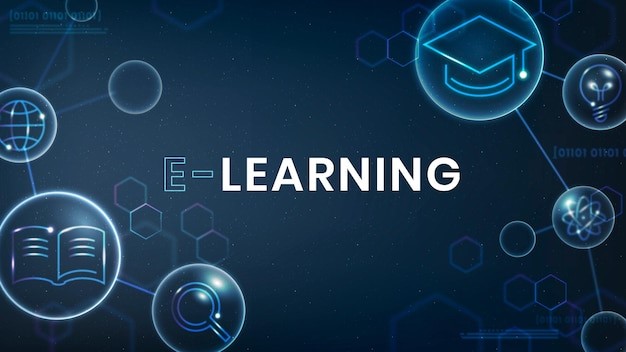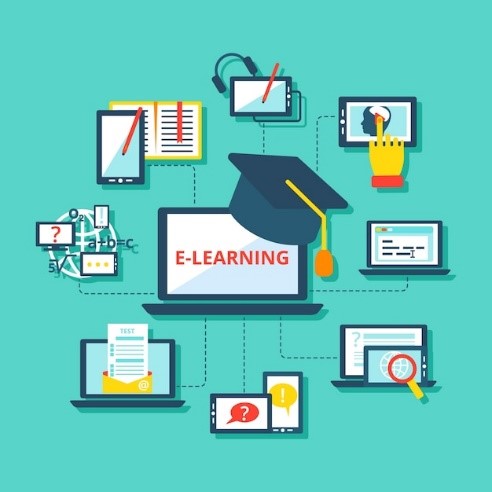Changing Face of eLearning Industry
Everything you ever wanted to know about eLearning industry future.
The eLearning industry has undergone a significant transformation in recent years, with the advancement of technology and changes in the way people access and consume information. The COVID-19 pandemic has also accelerated this transformation, as more people turned to eLearning as a means of continuing their education and training remotely. In this article, we will explore some of the ways the eLearning industry has changed and what the future may hold.
One of the most significant changes in the eLearning industry has been the shift towards personalized learning. With the help of artificial intelligence and machine learning algorithms, eLearning platforms can now analyse user data to create personalized learning paths based on their interests, strengths, and weaknesses. This allows learners to receive a customized learning experience that is tailored to their needs, rather than a one-size-fits-all approach. Personalized learning has been shown to improve learner engagement and retention, as well as increase the effectiveness of training programs.

Another major change in the eLearning industry has been the rise of mobile learning. With the widespread adoption of smartphones and tablets, learners are now able to access educational content anytime and anywhere. Mobile learning also enables learners to learn in short bursts, which is ideal for busy professionals who may not have large blocks of time to dedicate to training.

eLearning providers are now creating mobile-friendly courses and apps to meet the demand for on-the-go learning.
Gamification is another trend that has gained popularity in the eLearning industry. By incorporating game-like elements, such as points, badges, and leader boards, into the learning experience, eLearning providers can make the training more engaging and enjoyable. Gamification has been shown to improve learner motivation and participation, as well as increase the effectiveness of training programs.
Another significant change in the eLearning industry has been the increased use of video and multimedia content. Video-based learning has become increasingly popular, as it allows learners to see and hear concepts explained in a visual and engaging way.
Looking towards the future, the eLearning industry is likely to continue its growth and transformation. One area where we may see further development is in the use of virtual and augmented reality in eLearning. These technologies can create immersive learning experiences, allowing learners to explore and interact with virtual environments and objects. This can be particularly useful in fields such as medicine, engineering, and architecture, where hands-on experience is important.
Another area where the eLearning industry is likely to evolve is in the use of artificial intelligence and machine learning. These technologies can be used to create intelligent tutoring systems that can adapt to learners' needs and provide personalized feedback. AI can also be used to automate tasks such as grading and assessment, freeing up instructors' time to focus on more complex tasks.
In addition, the eLearning industry may see further developments in microlearning, which involves breaking down learning content into small, easily digestible chunks. Microlearning can be particularly effective for busy professionals who need to learn on the go or fit their learning around other commitments.
The eLearning industry may also continue to shift towards a more flexible and accessible model of education. This could involve the creation of more open educational resources (OER), which are freely available for anyone to use and adapt.

It may also involve the development of online credentialing and badging systems, which can help learners demonstrate their skills and knowledge to potential employers.The eLearning industry has undergone significant changes in recent years, and it is likely to continue to evolve in the years to come. With advances in technology and a growing demand for flexible and accessible education, we can expect to see further innovation and transformation in the eLearning industry.
In conclusion, the eLearning industry has undergone significant changes in recent years, driven by advances in technology and changes in the way people access and consume information. The industry has shifted towards personalized learning, mobile learning, gamification, video-based content, and collaborative and social learning. As the industry continues to evolve, we can expect to see even more innovative approaches to online education and training.

The Future of eLearning - 5 Trends to be aware of
The eLearning industry has been evolving rapidly over the past few years, and it is expected to continue to do so in the future. Some of the key changes that are currently shaping the eLearning industry include:
1. Rise of micro learning: Micro learning refers to the practice of delivering small, bite-sized pieces of content that learners can consume quickly and easily. This trend has gained momentum in recent years as learners look for more flexible and convenient learning options that fit into their busy schedules.
2. Personalized learning: With advances in technology, eLearning platforms are becoming better equipped to personalize learning experiences for individual learners. This means that learners can receive content that is tailored to their specific needs and learning styles, making the learning process more effective and engaging.
3. Gamification: Gamification involves using game-like elements such as rewards, points, and badges to motivate learners and make learning more fun and engaging. This trend has become increasingly popular in the eLearning industry as it helps to keep learners motivated and engaged.
4. Artificial intelligence (AI): AI is being used in eLearning to provide personalized recommendations, automate administrative tasks, and even create content. As AI technology advances, it is expected to have an even greater impact on the eLearning industry.
5. Mobile learning: Mobile devices have become an integral part of our daily lives, and this trend is reflected in the eLearning industry. Mobile learning allows learners to access learning content on the go, making learning more convenient and accessible.
Overall, the eLearning industry is expected to continue to grow and evolve as technology advances and learners demand more flexible and personalized learning options.